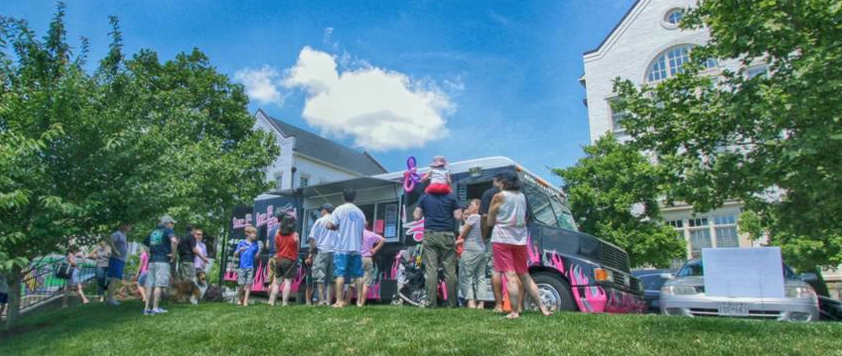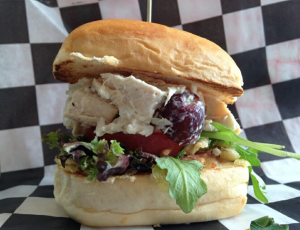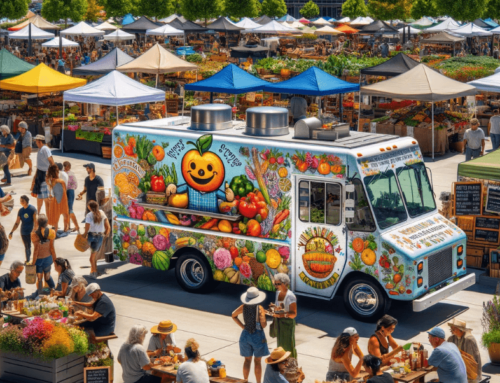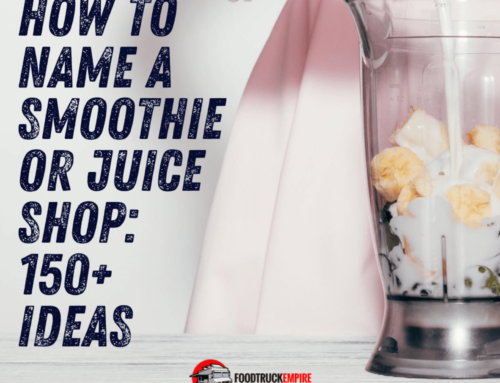Thinking about starting a food truck in Baltimore, Maryland? Then you’re in luck because Dave Pulford, the owner of UpslideDown Dave food truck, is here to break down what operating a food truck is really like in the city limits of Baltimore. Dave has been serving sliders since 2013 that range from the vegetarian-friendly Caprese Slider (featuring fresh mozzarella, tomato, and basil pesto) to familiar favorites with a twist like the All American Cheeseburger Slider (ground beef, cheese, vinaigrette slaw, pickle, onion rings, and bacon marmalade). Yummy!
In this Q/A, we had the opportunity to speak with Dave via email about what it’s really like to operate a food truck within the city of Baltimore. Dave was also kind enough to share his advice to newbies thinking about starting this type of business. Big thank you to Dave for taking the time to speak with FoodTruckEmpire about his business and be sure to eat at his truck if you live in the area.
FTE: Tell me a bit about your food truck UpslideDown Dave.
Dave: My food truck has been operational since May, 2013. Prior to opening UpslideDown Dave, I was a personal chef for about 2 years, providing dinner service and personal catering to my clients as well a getting some additional restaurant experience working on a line in a family owned Italian restaurant. I spent about 30 years in the mortgage industry and about 10 years in the restaurant supply and equipment business, developing valuable customer service, marketing and sales experience. I am married to my best friend and father to one and step dad to two. My wife has been my biggest motivation to open my truck.
FTE: How did you figure out what you needed to start a food truck in your area?
Dave: The majority of the learning process for me was online research as well as observation of existing operations in the Baltimore/Washington area. The first thing I did, and highly recommend to anyone thinking about getting into this business, or any other for that matter, is writing a business plan first. Once written, vet your plan with an industry expert and read everything you can put your hands on regarding the business. I didn’t find “The Food Truck Handbook” by David Weber, until I had been in business for about 6 months. Reading that book prior to starting would have been a better idea, but the book reinforced many of the decisions an procedures I put in place based on my experiences and research. The Maryland Mobile Food Vendors Association has been a very valuable resource for me as well. My fellow association members have become great friends and valuable advisers over the last 18 months and I recommend everyone entering the industry in this area join for themselves as well as for the betterment of the association.
FTE: What are some opportunities of owning a food truck in your city?
Dave: Operating in Baltimore has provided many valuable opportunities for my operation. First, through my association with the MMFVA, I was able to access and attend the “Gatherings” in Baltimore. An independent former food truck operator, gathers food trucks and bands in a location, advertises and manages each of the events and has helped many of us gain exposure and experience. Additionally, once per year a tri-city “Gathering” has taken place, where operators from other cities join to showcase their trucks, share information on their city and compete for the “best of” competition.
Baltimore, the city, has been welcoming to food trucks in the past and has allowed us to park in areas where employees at large employment centers can access our trucks. New legislation that was passed earlier this year may change some of those opportunities going forward and improve some as well. We will understand the rules better as soon as the regulations are enforced.
FTE: What are the challenges of operating a food business where you live?
Dave: I suppose the biggest challenges to operating in Baltimore is parking. Currently, the city has 11 designated parking spots that are supposedly only available to food trucks (currently about 60 trucks are licensed in Baltimore), however if an auto or other vehicle parks in that space there is no enforcement in place. The new legislation does change that, but restricts our locations to minimum 300 feet away from existing brick and mortar restaurant operations. We are also restricted from operating in proximity to the football and baseball stadiums on game days.
One of the best aspects of operating a mobile business is the ability to move to another location. Mobility also allows us to move to a different locale. The challenge we are faced with in Maryland is that each county/city has their own set of regulations, rules and licensing requirements. Each license comes with a cost of about $1,000 per year. Even though the state has clearly stated health department rules, each county/city seems to emphasize different aspects and requires slightly different regulations.
FTE: What business tips do you have for new vendors?
Dave: The list of advice I would give to new operators is very long, but I will try to highlight some of the most important. As earlier stated, write and vet your business plan, make it a work in progress and adjust your plan to the reality of the business as the days pass. Investigate the existing laws and regs, as well as investigating upcoming changes (join and become active with your local association). When building your truck, don’t look for the least expensive method, find someone knowledgeable of not only the mechanical operation of the truck, but of the equipment that is on-boarded. All food service equipment available today, is built to be in a stable position and not bouncing down the road to your next location. Be prepared to repair and replace just about everything you put on the truck. Purchasing the most expensive equipment may not be the best advice, but find equipment that will sustain the constant bouncing, rocking and rolling, and can be easily replace.
Resources for Getting Started in Baltimore
Maryland Mobile Food Vending Association – This is the local food truck association that Dave is a member of. Being aligned with local groups like this can help influence the local laws in your area and also help you book more lucrative catering gigs and events.
CharmCityFoodTrucks.com – This website tracks the location of food trucks operating in the Baltimore area. If you’re planning to operate in the area, it would be wise to make a connection with this website so hardcore foodies in the area know when and where you’re parked.
The Gathering Baltimore – This group organizes food truck events in the Baltimore area and plays an important role helping to promote the local mobile food scene. They’re also an awesome resource to keep up with recent mobile food news.
City of Baltimore – Official government website for the city of Baltimore. We reccomend connecting with the city on social media to help point you in the right direction for getting licensed to operate a mobile food unit in the area. They’ve got a terrific online presence that is well above most metro areas.
Case Study – See what it’s really like to start a mobile food business as we follow along with Anthony Salvagno as he builds his own business.






